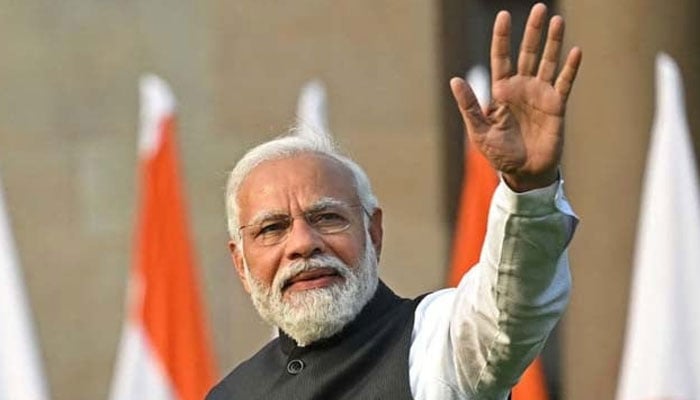India’s impunity
India seems to be following Israel model of carrying out assassinations on foreign soil of people it sees as a threat to Indian hegemony and this may not be last time it carries out such nefarious activities
Federal Interior Minister Mohsin Naqvi has said that the initial investigation into the attack on Amir Sarfraz Tamba, who allegedly killed Indian terrorist Sarabjit Singh in 2013, points towards India’s involvement – though the investigation is yet to be completed. This is obviously not the first time India has been accused not just by Pakistan but other countries of carrying out assassinations on foreign soil. A recent report in The Guardian revealed that there have been almost 20 killings since 2020 carried out by unknown gunmen in Pakistan and that India was behind these assassinations. Now Tamba’s assassination is on the same pattern and many experts will agree with Naqvi’s assessment that India may be behind this. India seems to be following the Israel model of carrying out assassinations on foreign soil of people it sees as a threat to Indian hegemony and this may not be the last time it carries out such nefarious activities. Experts have warned that India may try to target more people on Pakistani soil in the future.
The brazenness of India may be astounding to some but India under Modi has gradually been following Israel’s example – especially Israel under Netanyahu and his ilk. Last year in November, US authorities said that an Indian government official directed a failed plot to assassinate a Sikh separatist on US soil. This came in the wake of Canadian Prime Minister Justin Trudeau’s explosive revelations last September when he said that Canadian security agencies have been actively pursuing “credible allegations of a potential link between agents of the government of India” and the murder of Sikh leader and activist Hardeep Singh Nijjar who was a strong supporter of the Khalistan Movement. However, his death and two other deaths of prominent Sikh leaders – Avtar Singh Khanda in the UK and Pramajit Singh Panjwar in Lahore – pointed to a sinister trend about India’s terrorist activities on foreign soil. The foiled assassination attempt in the US further proved that India was actively involved in such nefarious activities and didn’t care about the international fallout if these plots were uncovered.
It was in this context that Pakistan’s foreign secretary revealed in January this year that Pakistan had “credible evidence” proving that Indian agents were involved in killing two Pakistanis in Islamabad. India’s killings-for-hire cases apparently involve a sophisticated international setup spread over multiple jurisdictions. It needs to be probed now and the international community – especially the US – must not look away from India’s terrorism on foreign soil just because it wants to use it as a proxy against China.
-
 What You Need To Know About Ischemic Stroke
What You Need To Know About Ischemic Stroke -
 Shocking Reason Behind Type 2 Diabetes Revealed By Scientists
Shocking Reason Behind Type 2 Diabetes Revealed By Scientists -
 SpaceX Cleared For NASA Crew-12 Launch After Falcon 9 Review
SpaceX Cleared For NASA Crew-12 Launch After Falcon 9 Review -
 Meghan Markle Gives Old Hollywood Vibes In New Photos At Glitzy Event
Meghan Markle Gives Old Hollywood Vibes In New Photos At Glitzy Event -
 Simple 'finger Test' Unveils Lung Cancer Diagnosis
Simple 'finger Test' Unveils Lung Cancer Diagnosis -
 Groundbreaking Treatment For Sepsis Emerges In New Study
Groundbreaking Treatment For Sepsis Emerges In New Study -
 Roblox Blocked In Egypt Sparks Debate Over Child Safety And Digital Access
Roblox Blocked In Egypt Sparks Debate Over Child Safety And Digital Access -
 Savannah Guthrie Addresses Ransom Demands Made By Her Mother Nancy's Kidnappers
Savannah Guthrie Addresses Ransom Demands Made By Her Mother Nancy's Kidnappers -
 OpenAI Reportedly Working On AI-powered Earbuds As First Hardware Product
OpenAI Reportedly Working On AI-powered Earbuds As First Hardware Product -
 Andrew, Sarah Ferguson Refuse King Charles Request: 'Raising Eyebrows Inside Palace'
Andrew, Sarah Ferguson Refuse King Charles Request: 'Raising Eyebrows Inside Palace' -
 Adam Sandler Reveals How Tom Cruise Introduced Him To Paul Thomas Anderson
Adam Sandler Reveals How Tom Cruise Introduced Him To Paul Thomas Anderson -
 Washington Post CEO William Lewis Resigns After Sweeping Layoffs
Washington Post CEO William Lewis Resigns After Sweeping Layoffs -
 North Korea To Hold 9th Workers’ Party Congress In Late February
North Korea To Hold 9th Workers’ Party Congress In Late February -
 All You Need To Know Guide To Rosacea
All You Need To Know Guide To Rosacea -
 Princess Diana's Brother 'handed Over' Althorp House To Marion And Her Family
Princess Diana's Brother 'handed Over' Althorp House To Marion And Her Family -
 Trump Mobile T1 Phone Resurfaces With New Specs, Higher Price
Trump Mobile T1 Phone Resurfaces With New Specs, Higher Price




